Earthquake rocks Cuba as residents struggle to recover from recent storms
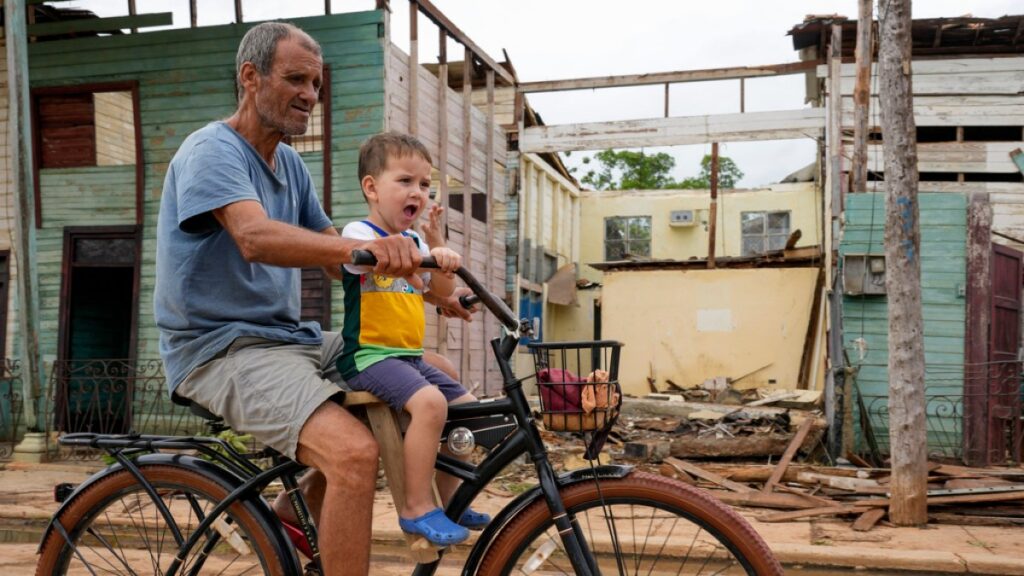
Officials say efforts to assess damage are under way after 6.8-magnitude earthquake hits eastern Cuba. A powerful earthquake has hit eastern Cuba, adding more problems to a country still reeling from a series of recent storms and blackouts. The United States Geological Survey (USGS) reported on Sunday that a magnitude 6.8 earthquake hit about 40km (25 miles) south of the town of Bartolome Maso. No deaths or injuries have been reported so far. “There have been landslides, damage to homes and power lines,” Cuban President Miguel Diaz-Canel said in a social media post, adding that the areas of Santiago de Cuba and Granma were affected. “We are beginning to assess the damage in order to begin recovery. The first and most important thing is to save lives,” he said. People in affected provinces have said the earthquake was one of the most powerful they have felt in their lives – no small feat in an area that the USGS says has experienced 23 earthquakes of magnitude 5 and above in the last 50 years. “We’ve felt earthquakes in the past, but nothing like this,” Santiago resident Griselda Fernandez told the Reuters news agency. Other residents in Santiago, Cuba’s second-largest city, reported that the quake caused buildings to shake and that many people were still standing nervously in their doorways. “You had to see how everything was moving, the walls, everything,” Yolanda Tabio, a 76-year-old in the city, told The Associated Press. Many of the region’s homes and buildings are older and vulnerable to earthquake damage. State-run media published images of terracota roofs and facades of concrete block homes that had collapsed with the shake. Many images showed structural damage to ceilings, walls, windows columns as well as to public infrastructure. The USGS said that nearby countries such as Jamaica also felt some effects. The tremor is the latest in a series of natural disasters that have compounded existing infrastructure problems in Cuba, where large swaths of the population also face economic insecurity. In October, Hurricane Oscar brought heavy rains and widespread power outages to the island and left at least six people dead after making landfall in eastern Cuba. Another storm, Hurricane Rafael, knocked out power for at least 10 million people after slamming into the eastern part of the island last week. The storm uprooted trees and knocked down telephone poles. Hundreds of buildings were destroyed and hundreds of thousands of people were displaced. Adblock test (Why?)
Haiti’s transitional council moves to replace PM in contentious move
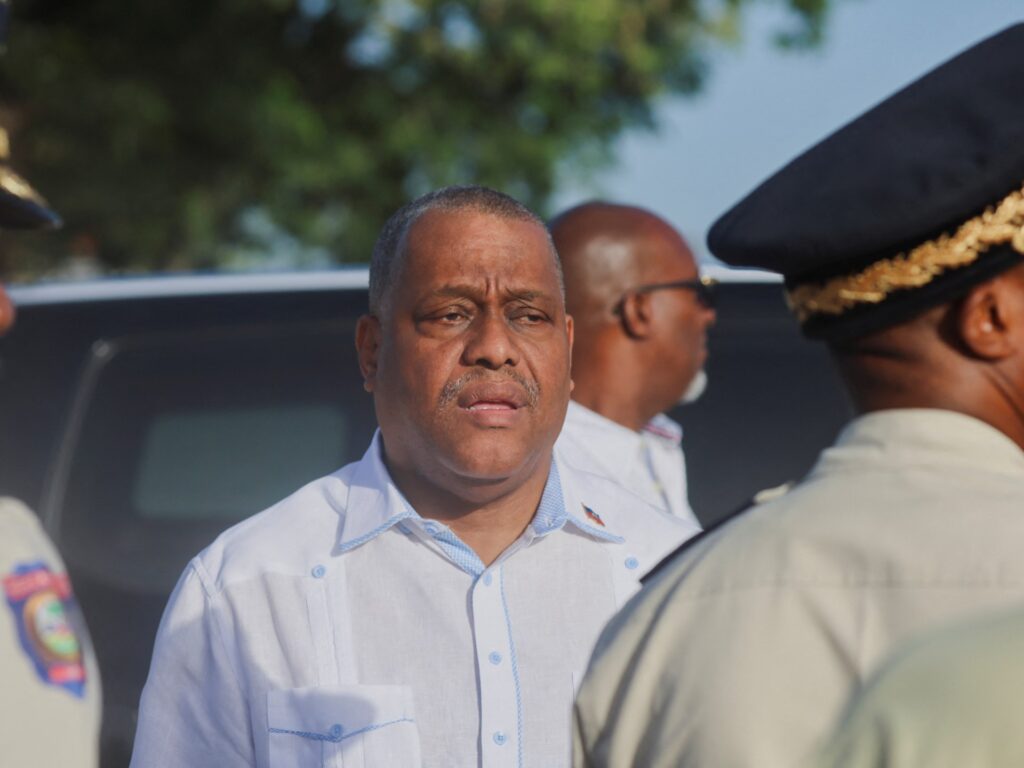
Council sets out to replace interim Prime Minister Garry Conille, marking more political turmoil and instability. A transitional council tasked with re-establishing democratic order in Haiti has signed a decree sacking interim Prime Minister Garry Conille, in a contentious move that highlights deepening political turmoil in the Caribbean nation. The decree, seen by The Associated Press, Reuters and AFP news agencies and set to be published on Monday, sets out to replace Conille with Alix Didier Fils-Aime, a businessman previously considered for the job. The nine-member council, which was formed in April to try to help Haiti chart a path forward amid surging gang violence and years of instability, appointed Conille as prime minister in May. But the council has been plagued by infighting and has long been at loggerheads with the prime minister, a longtime civil servant who previously worked with the United Nations. The Miami Herald reported that Conille and Leslie Voltaire, who leads the council, are at odds over a cabinet reshuffling and the removal of three council members named in a bribery scandal. Last month, anticorruption investigators accused those three council members of demanding $750,000 in bribes from a government bank director to secure his job. The report was a significant blow to the council and is expected to further erode public trust in it. The three members accused of bribery – Smith Augustin, Emmanuel Vertilaire and Louis Gerald Gilles – were among those to sign Sunday’s decree. Only one member of the council, Edgard Leblanc Fils, did not sign the order. Still, there are “divergent views” on whether the transitional council – whose members represent various political and civil society groups – has the power to remove Conille, the Miami Herald reported. “Constitutionally, only the Haitian Parliament can fire a prime minister, and presidents in the past have done so through political maneuvering by getting supporters in one of the two chambers of government,” the newspaper explained. “Haiti, however, is in the throes of a constitutional crisis where there is no Parliament and no democratically elected leader in the entire country.” The political turmoil comes as Haiti continues to reel from widespread gang violence, with armed groups exerting control over 80 percent of the capital, Port-au-Prince. Reporting from Washington, DC, Al Jazeera’s John Holman noted that a multinational, UN-backed policing mission in Haiti – deployed earlier this year and led by Kenya – “doesn’t seem to have made a dent” in the power of the armed groups. The gangs routinely use murder, kidnappings and sexual violence in their fight for control of territory across Port-au-Prince and other parts of the country. “It seems that the gangs are as powerful as ever right now,” Holman said. Last month, the UN warned that nearly half of all Haitians – some 5.41 million people – were experiencing acute food insecurity as a result of the violence. More than 700,000 people, more than half of whom are children, have been displaced from their homes, according to the International Organization for Migration. Adblock test (Why?)
Israel bombs northern Gaza house killing 13 children amid ongoing siege
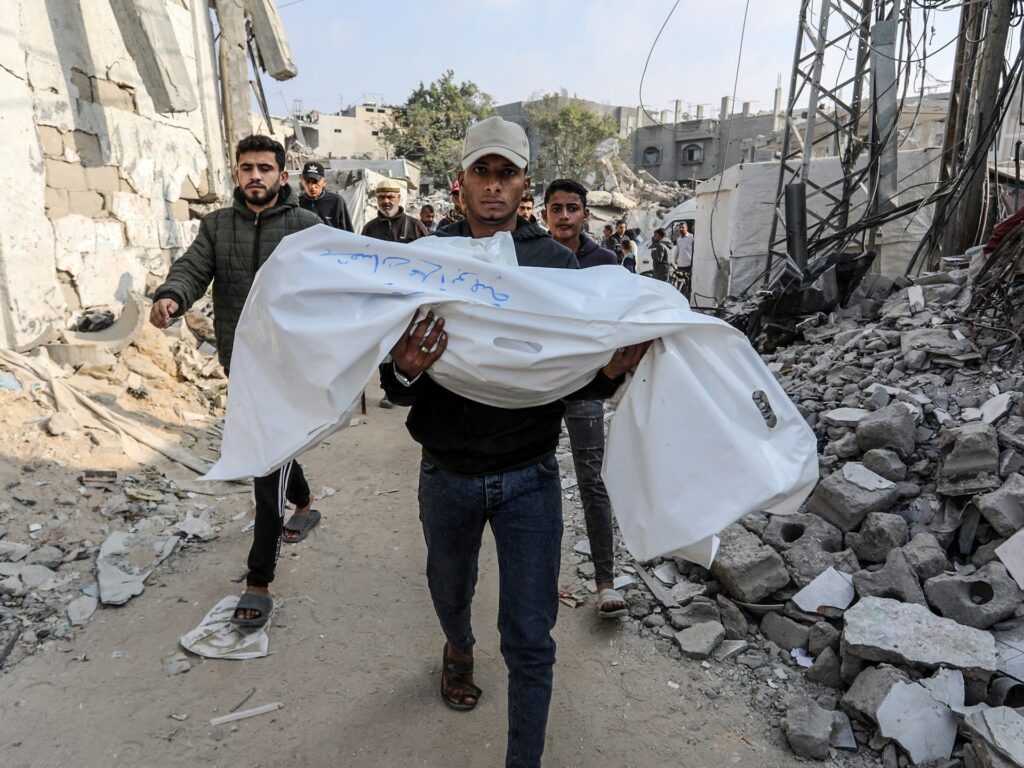
An Israeli strike on a house in the Jabalia refugee camp sheltering displaced Palestinians has killed at least 32 people, including 13 children, as rights groups warn of an “extremely grave situation” in northern Gaza amid weeks of ongoing military siege. “We now have a confirmed report that everybody in that house was killed. The last few remains were removed from under the rubble in the past couple of hours,” Al Jazeera’s Hani Mahmoud, reporting from Deir el-Balah in central Gaza, said, adding that the strike took place at 6am. Mahmoud said the attack took place “all of a sudden and without any prior warning”. According to a witness, the house was full of women and children who had been displaced from different parts of northern Gaza and had ended up in this particular building. “This is not about disarming certain groups but it’s about a systematic destruction of an entire area and turning it into more of a wasteland,” the Al Jazeera correspondent said, referring to the widespread destruction of northern Gaza due to nonstop Israeli bombardment and a military siege imposed on October 6. In a separate attack in Gaza City, an Israeli air strike on a house in the Sabra neighbourhood killed Wael al-Khour, an official at the Welfare Ministry, and seven other members of his family, including his wife and children, medics and relatives said. The Ministry of Health in Gaza said more than 50 people were killed in total and 164 injured in three attacks across Gaza on Sunday. Israel has killed more than 43,000 Palestinians since it launched its devastating war on Gaza in the wake of an October 7, 2023 Hamas attack that killed more than 1,100 people and about 250 others were taken captive. The UN human rights office (OHCHR) said on Friday women and children comprise nearly 70 percent of the thousands of Palestinian deaths it had managed to verify. Military siege for weeks For the past 36 days, Israeli forces have laid siege in areas in northern Gaza, including Jabalia and Beit Lahiya, choking the entry of already scarce humanitarian supplies. Mahmoud Alsaqqa, OXFAM’s food security and livelihood lead in Gaza, said the “extremely grave situation” in the Strip is deteriorating further. This comes following a warning by the Committee of Global Experts that famine is imminent in northern Gaza and action is needed within days to avert a catastrophe. “Those residing in northern Gaza are left without any essentials for survival,” Alsaqqa told Al Jazeera from Deir el-Balah, as no aid or food supplies have entered the north for more than a month except for a small amount of medical supplies. “The average number of trucks coming in now is below 50. We used to have 500 trucks per day [before October 7, 2023], so you can imagine the huge needs people have compared to what’s coming in,” he said. Along with stepping up the bombardment, the Israeli army has issued new waves of forced displacement orders for residents in the north, driving people to be displaced internally from the north. Still, many have refused to leave despite the catastrophic humanitarian conditions and the near-daily shelling. Many of them told Al Jazeera that they fear leaving the area because of the risk of being attacked by Israeli soldiers. The Israeli daily Haaretz accused Prime Minister Benjamin Netanyahu and the military of “conducting an ethnic cleansing operation in the northern Gaza Strip”. “The few Palestinians remaining in the area are being forcibly evacuated, homes and infrastructure have been destroyed, and wide roads in the area are being built and completing the separation of the communities in the northern Strip from the center of Gaza City,” it wrote in an editorial. As of November 4, the UN Office for the Coordination of Humanitarian Affairs (OCHA) estimated that about 100,000 people had been displaced over four weeks from the North Gaza governorate to Gaza City. Up to 95,000 people remained in North Gaza, OCHA said. The Israeli army says it wants to prevent the regrouping of Hamas fighters there. Yet, the depopulation of the northern part of the enclave and the widespread destruction have stoked fears of war crimes. On Thursday, the Israeli military sought to distance itself from comments made last week by an Israeli commander, who said Israel was closer to “the complete evacuation” of the north and that residents from there would not be allowed back once the fighting was over. Adblock test (Why?)
The EU Migration Pact

Irregular migration into the EU has become the political football of the 21st century. Irregular migration into Europe is a complex and urgent issue driven by conflicts, economic struggles and human rights abuses in migrants’ home countries. To help things run more smoothly, the EU introduced the Pact on Migration and Asylum. However, it’s faced some political pushback, highlighting the ongoing challenge of balancing member states’ compliance with domestic pressures. Adblock test (Why?)
Qatar suspends Gaza mediation efforts

NewsFeed Qatar says it has suspended its mediation efforts between Israel and Hamas after a lack of progress in reaching a ceasefire deal for Gaza. Published On 10 Nov 202410 Nov 2024 Adblock test (Why?)
Volcano eruption in Indonesia claims the lives of at least 9 people
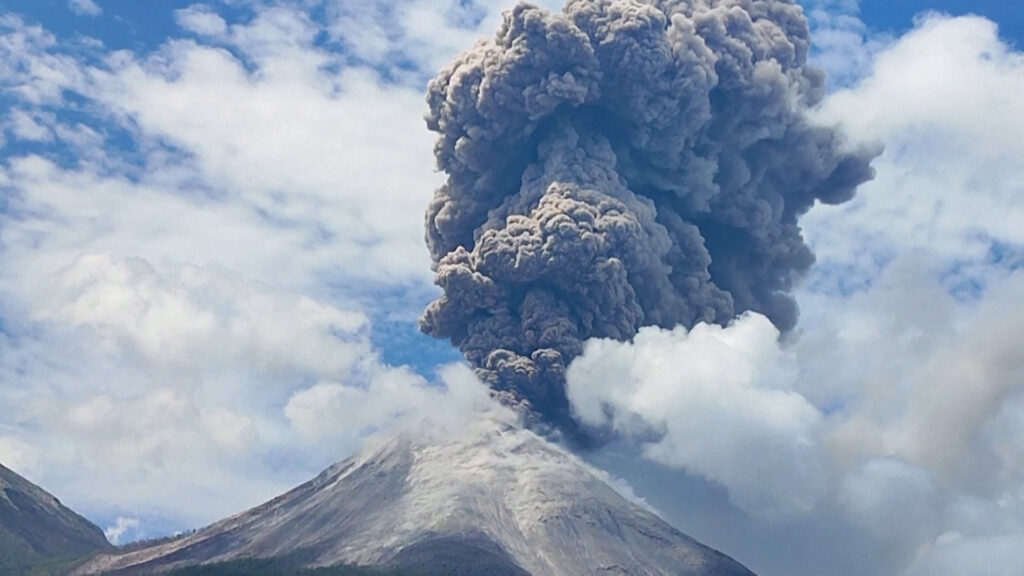
NewsFeed Mount Lewotobi Laki-Laki in Indonesia has erupted repeatedly, claiming at least nine lives and forcing thousands from their homes as exclusion zones widen and emergency aid efforts increase. Published On 9 Nov 20249 Nov 2024 Adblock test (Why?)
Thousands protest in Spain’s Valencia over handling of deadly floods
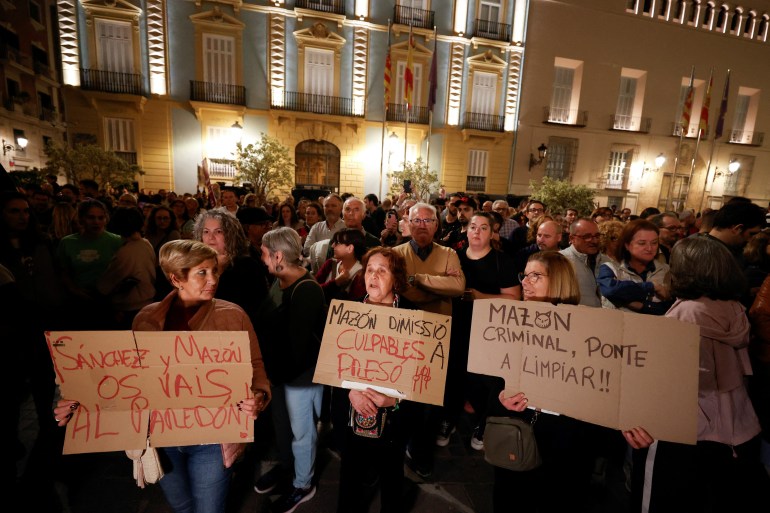
About 80 people are still missing and people are angry at the government after the deadliest deluge in decades. Thousands of people have demonstrated in Spain’s eastern city of Valencia to protest the authorities’ handling of one of Europe’s deadliest natural disasters in decades and call for accountability. Large crowds gathered in the central part of the city on Saturday night, with some clashing with riot police in front of Valencia’s city hall. Police were filmed using batons to beat back protesters who were marching towards the seat of the regional government. In Spain, regional governments are charged with handling civilian protection and can ask for extra resources from the national government in Madrid. The current regional leader is Carlos Mazon of the conservative Popular Party, who is facing calls for resignation after his administration failed to issue flood alerts to citizens until after the water was filling people’s homes. Mazon has defended his handling of the crisis, arguing that the magnitude of the crisis was unforeseeable and that authorities in Madrid failed to notify his administration adequately and on time. But Spain’s weather agency issued a red alert, the highest level of warning, for bad weather at approximately 7:30am local time (06:30GMT) on Tuesday morning, more than 12 hours earlier than Mazon’s administration finally sent out alerts to people’s cellphones. The regional leader is also facing heavy criticism due to what people viewed as a slow and unorganised response to the natural disaster, which has killed at least 220 people as of Saturday. People hold placards as civil groups and unions protest against Valencia’s regional leader Carlos Mazon [Eva Manez/Reuters] In many of the hardest-hit areas on Valencia’s southern outskirts, volunteers were the first to help people, with the government taking days to fully mobilise the thousands of police forces and soldiers who were sent to assist the flood-stricken. “You killed us!” some of the protesters wrote on their protest banners on Saturday, with others chanting for Mazon’s resignation and some leaving muddied boots outside the council building to show their fury. “We want to show our indignation and anger over the poor management of this disaster which has affected so many people,” said Anna Oliver, president of Accio Cultural del Pais Valenciano, one of about 30 groups that organised the protest, according to the Reuters news agency. There were also protests in Valencia earlier this week, and people threw mud and chanted “murderers” when King Felipe and Prime Minister Pedro Sanchez visited a suburb of the city. At least 212 of the deaths were recorded in the eastern Valencia region, and nearly 80 people are still believed to be missing in the deadliest deluge in a European country since floods in Portugal in 1967 killed about 500. Adblock test (Why?)
Thousands march in Valencia to protest flood response
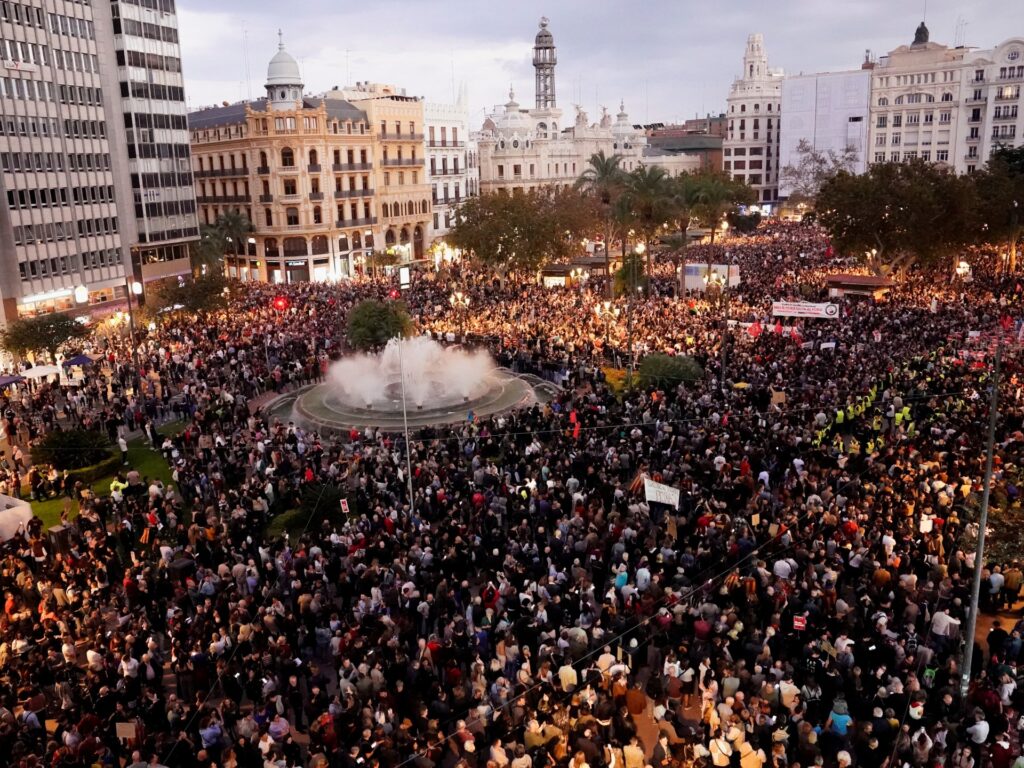
NewsFeed Thousands of protesters march in the Spanish city of Valencia, expressing their anger at the response to catastrophic flooding that killed more than 200 people in October. Published On 9 Nov 20249 Nov 2024 Adblock test (Why?)
Boy who sleeps on his mother’s grave in Gaza
[unable to retrieve full-text content] Palestinian boy Zein Yousef has been sleeping at his mother’s grave since she was killed in an Israeli attack in Gaza.
Nearly 380,000 people displaced by South Sudan floods, UN says
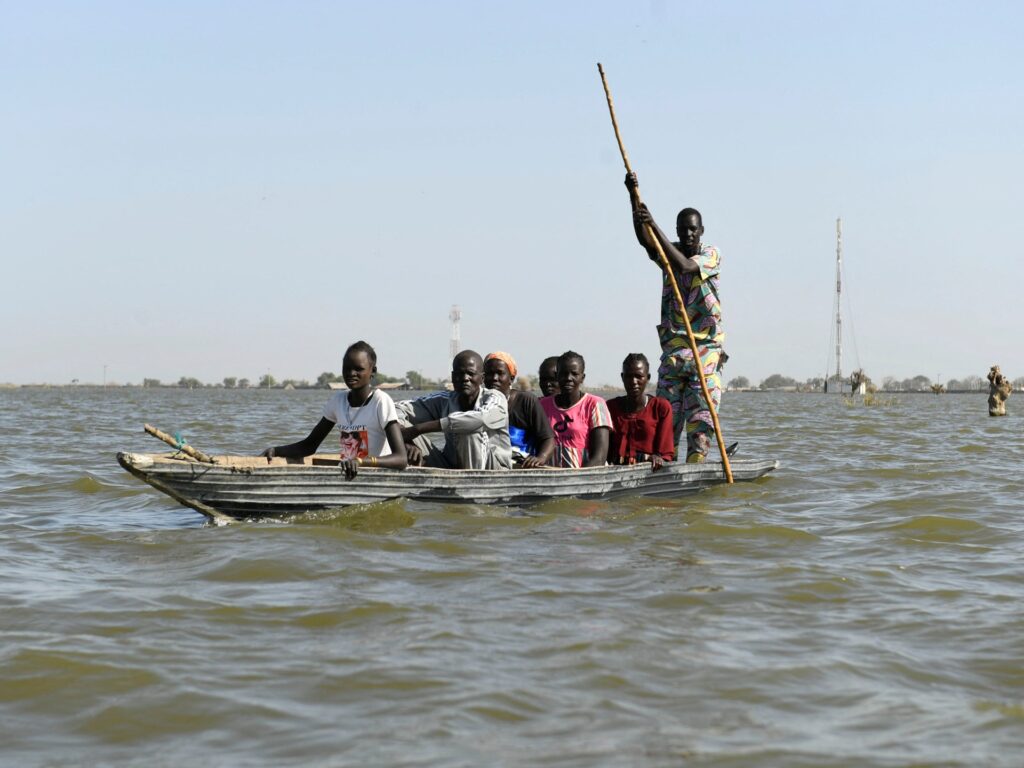
A surge in malaria is reported in several states and is overwhelming the health system, according to a UN agency. Flooding in South Sudan has displaced more than 379,000 people, according to a United Nations update that warned about a surge in malaria. Aid agencies have said the world’s youngest country, highly vulnerable to climate change, is in the grip of its worst flooding in decades, mainly in the north. The floods have affected about 1.4 million people, the UN Office for the Coordination of Humanitarian Affairs (OCHA) said on Friday, across 43 counties and the disputed Abyei region, which is claimed by both South Sudan and Sudan. It added in a statement that more than 379,000 people were displaced in 22 counties and in Abyei. “A surge in malaria has been reported in Jonglei, Unity, Upper Nile, Northern Bahr el Ghazal, Central Equatoria and Western Equatoria states – overwhelming the health system and exacerbating the situation and impact in flood-hit areas,” the UN agency said. Since gaining independence from Sudan in 2011, South Sudan has been plagued by chronic instability, violence and economic stagnation as well as climate disasters such as drought and floods. More than 1.6 million children malnourished The World Bank said last month that the latest floods were “worsening an already critical humanitarian situation marked by severe food insecurity, economic decline, continued conflict, disease outbreaks, and the repercussions of the Sudan conflict“, which has seen several hundred thousand people pour into South Sudan. More than seven million people are food insecure in South Sudan and 1.65 million children are malnourished, according to the UN’s World Food Programme. The country faces a further period of political paralysis after the president’s office announced in September yet another extension to a transitional period agreed to in a 2018 peace deal, delaying elections by two years to December 2026. South Sudan has vast oil resources but the vital source of revenue was decimated in February when an export pipeline was damaged in neighbouring war-torn Sudan. Adblock test (Why?)
